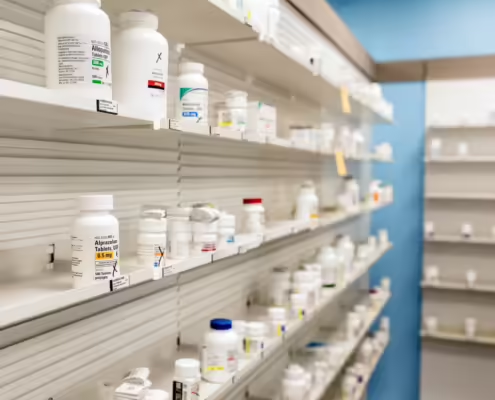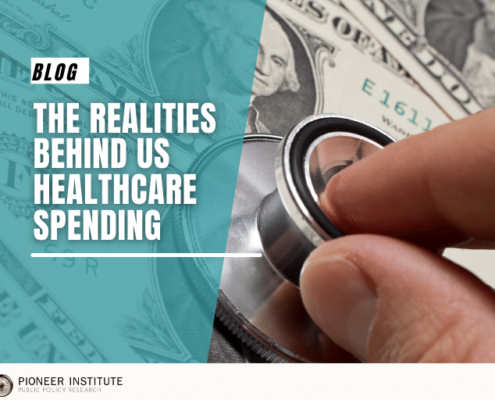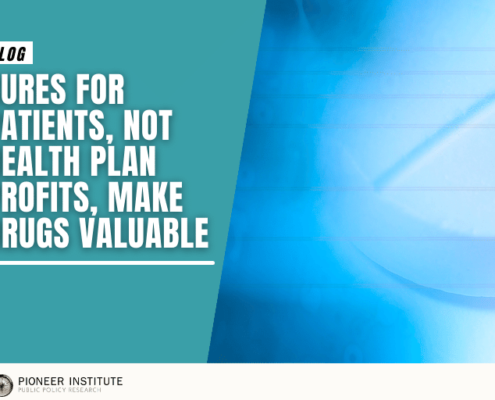
MBTAAnalysis: A look inside the MBTA
0 Comments
/
The MBTA shuttles over a million passengers a day around Greater…
 https://pioneerinstitute.org/wp-content/uploads/CloseupClock-1.jpg
739
1244
Mary Connaughton
https://pioneerinstitute.org/wp-content/uploads/logo_440x96.png
Mary Connaughton2017-02-20 12:34:192017-02-21 09:47:58The Clock is Ticking…….
https://pioneerinstitute.org/wp-content/uploads/CloseupClock-1.jpg
739
1244
Mary Connaughton
https://pioneerinstitute.org/wp-content/uploads/logo_440x96.png
Mary Connaughton2017-02-20 12:34:192017-02-21 09:47:58The Clock is Ticking…….
Pioneer Institute Study Calls for Reforms to Ensure that Pharmacy Benefit Manager Practices Benefit Patients, Healthcare Payers
Congress likely to take up PBM reform early this year; Pioneer Institute Calls for PBM’s to be more transparent

An Evaluation of 340B in Massachusetts
Despite the fact that the 340B Drug Pricing Program has expanded immensely in recent years, the amount of charity care that hospitals are providing has decreased. This points to several problems with the 340B program across the country and in Massachusetts, such as a lack of transparency and inaccessible care.

‘High’ U.S. Drug Prices Mask Freeloading by Other Nations
The drug company’s choice is to walk away from millions in revenue from a given country and deny their people a lifesaving drug, or swallow hard and accept an unfair price that is nowhere near the drug’s value. For the sake of shareholders and patients, drug companies typically accept the unfair price and devote the revenue to offsetting their previous investments. In short, other nations are freeloading off of American R&D.

University Science Research Is Under Threat
The Biden administration's formation of a working group to “develop a framework for the implementation of the march-in provision of the Bayh-Dole Act" could have serious adverse consequences for university research and biopharmaceutical innovation. It represents a particularly dangerous threat to the thriving life sciences cluster in Greater Boston.

Sunshine Week 2023: Shining Light on the Workings of Government
Pioneer Institute is proud to join with the media and others—including The Boston Herald, The Boston Globe, CommonWealth Magazine, Common Cause, and the ACLU—in marking Sunshine Week, March 12-18.

Is CHIA’s Drug Cost Data Reliable?
Earlier this year, the Center for Health Information and Analysis (CHIA) released its Annual Report on the Performance of the Massachusetts Health Care System for 2020. The Massachusetts Legislature relies on CHIA data when considering bills to regulate drug costs and prices. The advocacy group Health Care for All reported that CHIA data showed prescription drug spending grew by 7.7 percent in 2020, more than twice the benchmark - but the most reliable data on prescription drugs indicates that spending in 2020 was essentially flat.

Is this PBM tactic blocking healthcare access?
Utilization Management (UM) was originally a strategy designed to improve the safety, quality, and cost-effectiveness of physician prescribing. However, UM has grown exponentially over the last decade, becoming more a tactic for Pharmacy Benefit Managers (PBMs) to manage costs to benefit their bottom line.

The Realities Behind US Healthcare Spending
Healthcare policy is an all-encompassing term. It plays a role in every individual’s life; how it is curated, developed, and maintained has a significant long-term impact on the quality of life of any given community. It is critical that policymakers consistently adapt and amend healthcare policies in the ever-changing global pricing and affordability environment while providing funding support for optimal quality of care.

Cures for Patients, Not Health Plan Profits, Make Drugs Valuable
To the astonishment of many observers, the Institute for Clinical and Economic Review (ICER) recently concluded that a $2.1 million gene therapy for a life-threatening blood disorder called beta thalassemia, is priced cost-effectively. The surprise was especially pleasant, given that ICER’s methodology had, in the past, displayed bias against rare disease treatments and undervalued the lives of people living with disabilities.
